The following are short reviews of the books that I read in July. The marks I have given them in the brackets are out of five.
 The Sportswriter – Richard Ford (3.5)
The Sportswriter – Richard Ford (3.5)
Frank Bascombe is a sports writer who writes as much about his life as he does about sports. He is introspective but direct and scrupulously avoids metaphor and analogies, narrating the story of his life with a sardonic detachment, like Holden Caulfield all grown up.
Although he remains on good terms with his ex-wife after their son’s death, he has no other real friends. He is a member of the divorced men’s club and they go on fishing trips and to bars where they talk about cigars and sports. He has a fatalistic view of life and relatively low expectations. Life just is; things just are. He takes a girlfriend to a hotel in Detroit and they are snowed in – it is a masterpiece of alienation.
He defines himself by his job, rather than any other aspect of his life and he is even disparaging of that. “It is no loss to mankind when one writer decides to call it a day. When a tree falls in the forest, who cares but the monkeys?” He believes that writers actually do life a disservice, and that sports’ writers are the worst. He prefers guessing and theorising to knowing statistics and he enjoys sports as comforting waste of time rather than a clinical business.
The novel was written in 1988 but has a timeless quality and, although he seems to posit himself as Everyman, it is not a particularly cheerful picture. There is an almost Garrison Keillor-esque aspect to his writing, and it is a paradox that you can be gripped by his self-confessed unprepossessing life.

Twelfth Night: Critical Essays – Stanley Wells (ed.) (4)
In this collection of essays on Shakespeare’s Twelfth Night, critics, directors and scholars debate aspects of staging, character, plot, language and individual productions.
Critics vary greatly in their opinions on the play, from the title to the setting and the characterisation. Often the critical essay says more about the critic (and the time in which they were writing) than it does about the play – for example J. B. Priestley clearly has a very dim view of marriage, believing that Sir Toby is a tragic figure because he is ‘tricked into’ marrying Maria who will instantly change character once she has a ring on her finger. “Maria the chambermaid, with a comically sympathetic view of sack, catches, and late hours, is one thing, and Maria the wife, with a husband to reform, is another.” It is small wonder then that J. B. Priestley was married three times.
Many of the critics and directors deem Malvolio to be the central character, although how much sympathy to award him and how much affiliation he should have with the Puritans is hotly debated. It is often stated that Shakespeare borrowed all the bits of Twelfth Night from other plays – including his own, and many of the essayists compare works and characters.
The juxtaposition of romance with comedy means there is always the shadow of the one on the other. This is discussed by all of the critics as is the difference in language between the courts and the importance of music. They also write about the setting and how the play may have multiple interpretations setting a fantastic challenge for directors wishing to make their mark.
The essays also include general comments on acting, staging and extraneous business, all of which are fascinating and well worth considering. If performing the play, this book is an invaluable companion.
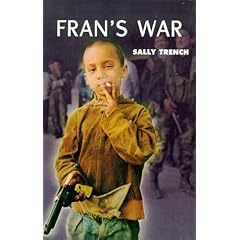 Fran’s War – Sally Trench (3)
Fran’s War – Sally Trench (3)
Told through the eyes of a child, but written by an adult, Fran’s War is a bit like I Am David or The Silver Sword, as a bunch of children in a war-torn country try to survive and reach a safe place. Evicted from their homes in the ‘Bosnian conflict’ they gather a small troupe (including a starving stray dog which provides unconditional love and loyalty) and they traipse through the mountains in their own incredible journey. On their travels, Fran and her friends encounter the UN and renegade soldiers. They walk across minefields and see their villages burn and their neighbours shot in the head. They camp in caves and hide in basements. Fran rifles through dead bodies in the hospital mortuary for extra clothing. All the classic images of war-struck Bosnia are included. The children carry water in a child’s buggy; queue endlessly for bread and meagre provisions; burn books for heat and fuel; and dash across bridges to avoid sniper fire.
Religion plays a big part in this novel, which is only to be expected considering that Sally Trench was named Catholic Woman of the Year in 1995. She portions no blame, however, and is even-handed in her treatment of all faiths. Each side thinks the other is the enemy and the minority will be the victims. Resentments and perceived injustices flare up so that they turn on one another seeking someone to blame until, “War had come to our village without a single shot being fired.” As a child, Fran encounters a tall blonde foreigner while skiing at a resort. She thinks of him as God and when she meets him seven years later as an aid worker in an extremely unlikely turn of events, he becomes a clear Christ-like figure.
It would be difficult to categorise this novel – it is probably too graphic for young adults and contains some over-bearing religious iconography, but it is too simplistic for an adult readership. It perhaps belongs to the no man’s land of war.

Approaches to Twelfth Night – Michael Billington (ed.) (4.2)
Michael Billington talks to four directors about their approaches to Twelfth Night and this is practically a transcript of their conversation. They discuss the division between the comic and the romantic scenes, the setting and the characters.
The sections on whether or not to play it in modern dress, how much to stick to the text and how much to compromise to a modern audience are very interesting. Terry Hands says the different humours can exist side-by-side because each emotion is intense in itself – as in pointillism there are red or white dots but no wishy-washy pink. John Caird reflects on the myriad of potential interpretations and suggests that every actor should be present at all rehearsals so that they are aware of the possible meanings too.
Although the interview is about this play in particular, and there are discussions of the role and portrayal of each of the characters, it is also about acting in general. There are some useful asides about how an actor finds an emotional connection with their character. John Caird argues that actors are not normal, so their experiences will not be those of the audience. He also cautions against the efficacy of creating a back story, as many actors do. This is all very well to help the actor understand the character and the words, but how do you convey that to the audience without overdoing it?
This is fascinating stuff for anyone who wants to act or direct and certainly for anyone who wants to be involved in a Shakespeare production.
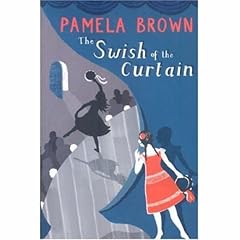 The Swish of the Curtain – Pamela Brown (3.4)
The Swish of the Curtain – Pamela Brown (3.4)
Recently as I discussed with some friends the books that had the biggest influence on their lives, one of my good friends mentioned this novel she had read being about a group of children who set up a theater company and produce their own plays. ‘Need I say more?’ she asked and I thought not, so I got it out of the library to see what the excitement was all about.
It’s terribly dated although that isn’t necessarily a bad thing. It’s sexist but simple. The children perform a range of plays from Shakespearean excerpts to pantomimes and nativity plays. And they always get a great audience. They write their own songs and plays, enter a competition (which of course they win) and perform outdoor pageants. As they play instruments, perform acrobatics, sing, dance and act, they are little Renaissance figures. Everyone in the village comes to support them and enjoy the artistic experience – now that’s certainly dated!
Pamela Brown began this book when she was fourteen-and-a-half, and finished it when she was fifteen. Although it is badly written and she has a habit of overusing adverbs (“he said, ungrammatically”; “she remarked ambiguously”) she is probably far more informed about literary matters than most modern teenagers. The children all give their opinions on the performance of Shakespeare’s plays with knowledge of stagecraft and character development not limited to CGI and video games.
Although the parents worry that trying to make a career in the theatre is “such a precarious living” they acquiesce for their children to go to a dramatic school. It is the sort of book where you know they will be able to overcome all hurdles and achieve their ambitions no matter how unlikely and insurmountable they may appear. All is jolly and the feel-good factor is turned up high. They don’t write children’s books like that anymore either.
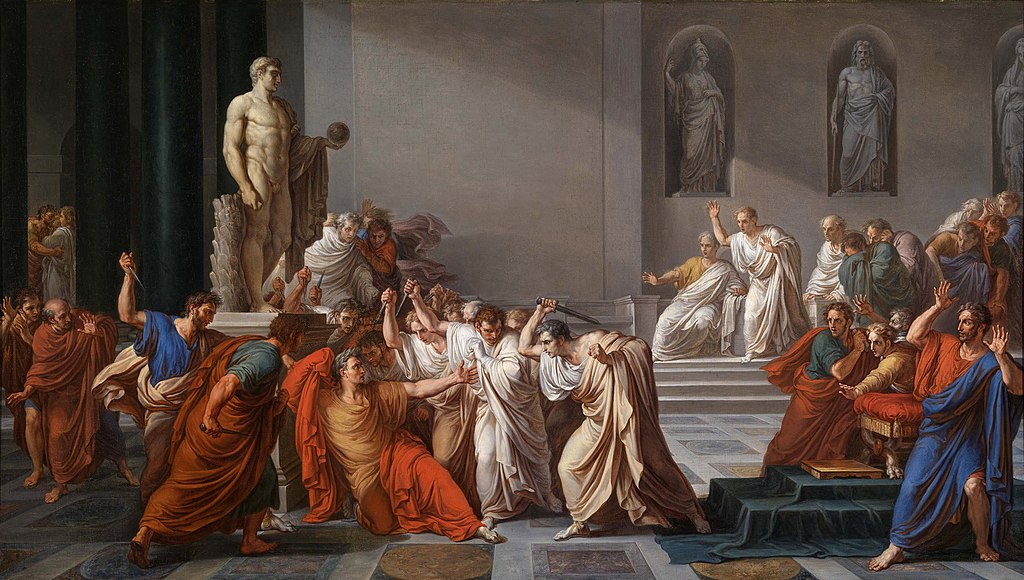



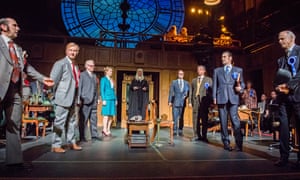

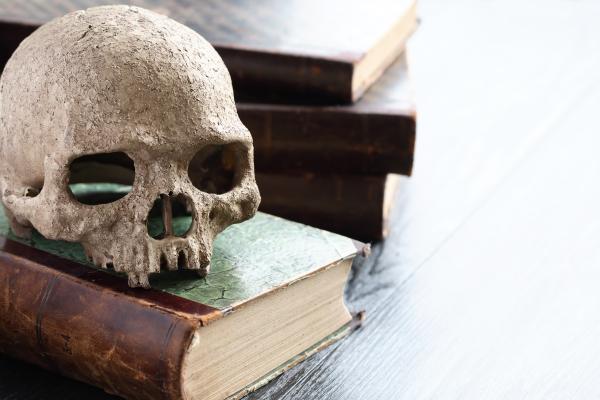





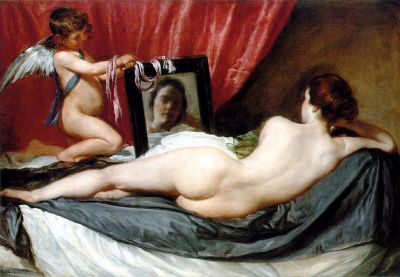









 Raise your foaming tankards high and salute the mercurial majesty that is beer. Hug those brewers – even the shy and retiring types. Actually, I don’t know any shy and retiring brewers. But who am I to talk; I shall be acting, and we theatre folk are not exactly known for our shy retirement either, but we do generally love beer – it’s a wonderful combination!
Raise your foaming tankards high and salute the mercurial majesty that is beer. Hug those brewers – even the shy and retiring types. Actually, I don’t know any shy and retiring brewers. But who am I to talk; I shall be acting, and we theatre folk are not exactly known for our shy retirement either, but we do generally love beer – it’s a wonderful combination! 


 Him Outdoors loves training more than the race. In a way, I almost prefer rehearsals to the performance. By the time you get there, everything should be fixed and constant. You know where you are. I like getting there. I’ve always enjoyed anticipation. After all, ‘It is better to travel hopefully than to arrive’ as someone once said. Probably British Rail.
Him Outdoors loves training more than the race. In a way, I almost prefer rehearsals to the performance. By the time you get there, everything should be fixed and constant. You know where you are. I like getting there. I’ve always enjoyed anticipation. After all, ‘It is better to travel hopefully than to arrive’ as someone once said. Probably British Rail.

